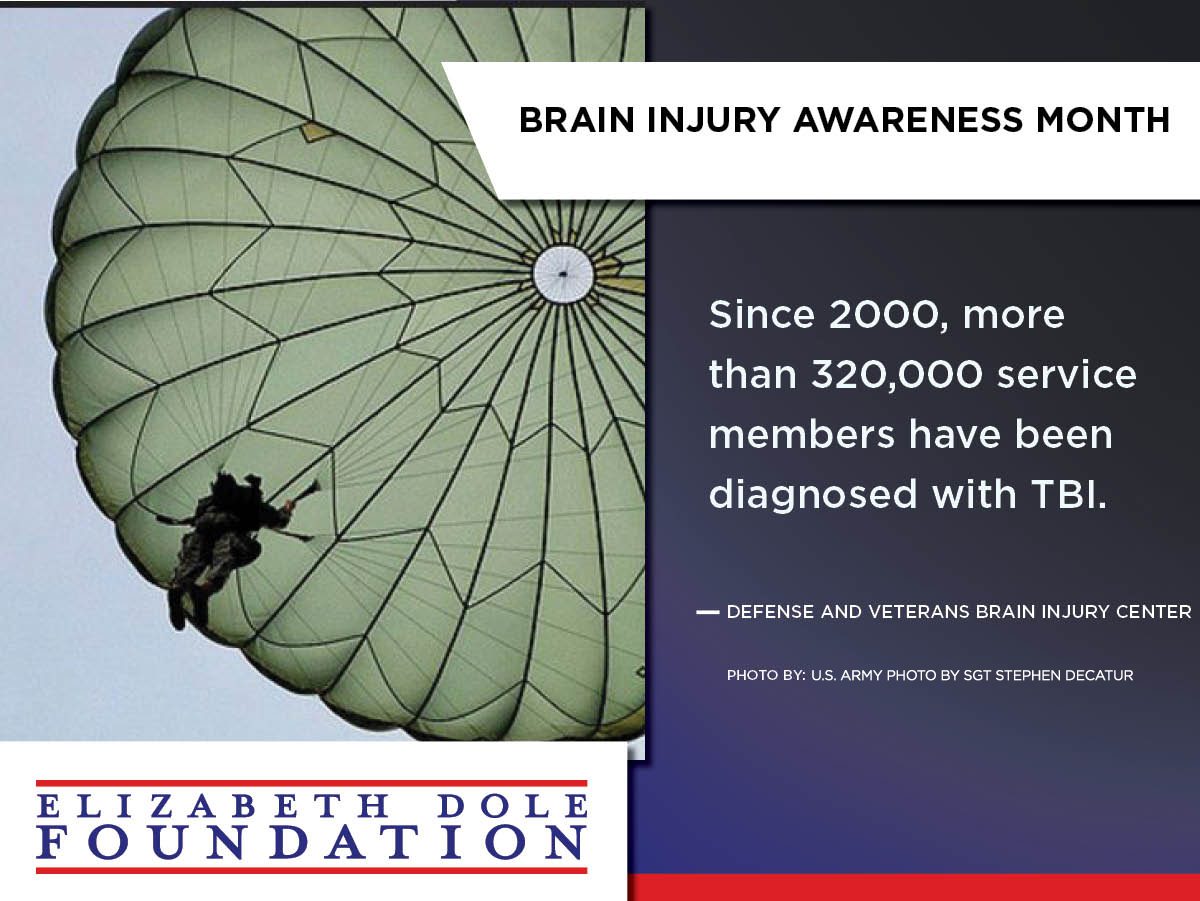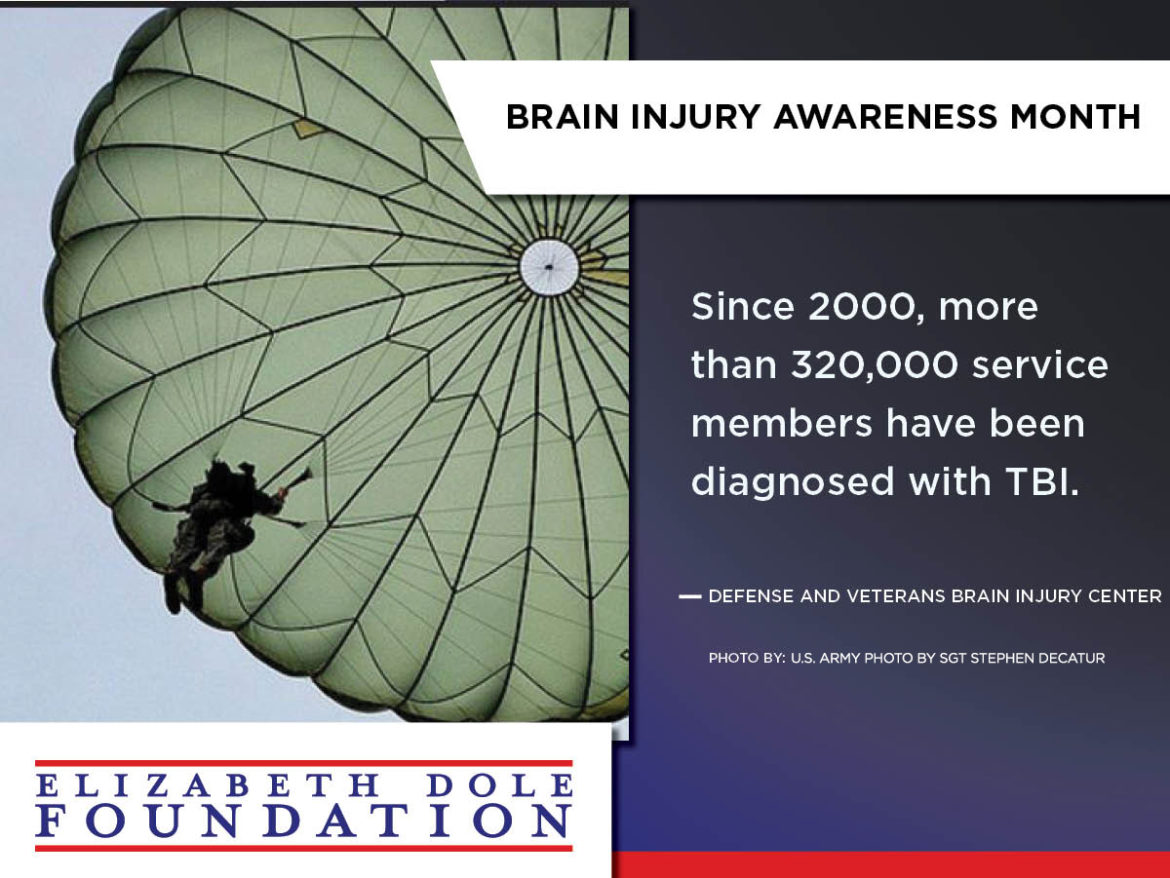The Elizabeth Dole Foundation recognized Brain Injury Awareness Month by calling attention to the unique needs and resources available to those who care for service members and veterans who sustained a traumatic brain injury (TBI). More than 320,000 service members have returned from the wars in Iraq and Afghanistan with a TBI, and the Foundation’s RAND report revealed that 20% of post-9/11 caregivers and 10% of pre-9/11 caregivers assist someone who has suffered these injuries. TBIs have become so pervasive in modern conflicts that they have been named the signature wound of today’s wars.
Yet despite their widespread occurrence, a 2008 RAND report stated that the extent of these injuries and how they will manifest over time is largely unknown. Brain injuries among the civilian population cannot be considered reliable predictors for how TBIs related to military service will develop because civilian brain injuries are often mild and do not lead to long-term damage. In contrast, TBIs suffered during combat are associated with chronic memory problems, seizures, confusion, clouded thinking, and early onset dementia.
Caring for someone with a TBI can come with enormous challenges, starting with the initial diagnosis. Many caregivers report seeing the signs of a TBI before doctors, or even the care recipients recognize them. One of the reasons the RAND report called for caregivers to be included in their veterans’ medical teams is because the extent of a TBI is not always detected by exams, and the veterans accidentally, or sometimes intentionally, misreport the symptoms they experience at home.
Overtime, TBIs can place enormous strain on the caregiver and care recipient relationship. Communication can be complicated by disorders such as aphasia, which can result in the injured person unintentionally swapping like-sounding words, and confabulation, a communication deficit that can cause the care recipient to talk about stories, facts, or events that never occurred, yet they believe to be true. TBIs can also affect intimacy when a caregiver is caring for a partner. The injury can create an imbalance in the relationship and, in some cases, change the dynamic to feel more like that of a parent and child.
The Foundation and our Fellows shared a variety of resources on this subject on social media throughout the month of March. Among the highlighted organizations and groups were the RAND Corporation, Brainline.org, Defense Centers of Excellence for TBI and PTSD, Brain Injury Association of America, and the Facebook page “Traumatic Brain Injury Support Group.”













Follow Us